Introduction
Essential oils have been cherished for centuries for their therapeutic properties and delightful aromas. Today, they are widely used in skincare for their natural ability to enhance skin health and beauty. Whether you have dry, oily, sensitive, or aging skin, there’s an essential oil tailored to your needs. This article delves into the benefits of essential oils for skin, how to choose the right ones, and safe usage tips.
What are Essential Oils?
Essential oils are concentrated plant extracts obtained through distillation or cold pressing. These oils capture the plant’s scent and beneficial properties, making them powerful allies in skincare. Common methods of extraction include steam distillation, which preserves the oil’s integrity and potency.
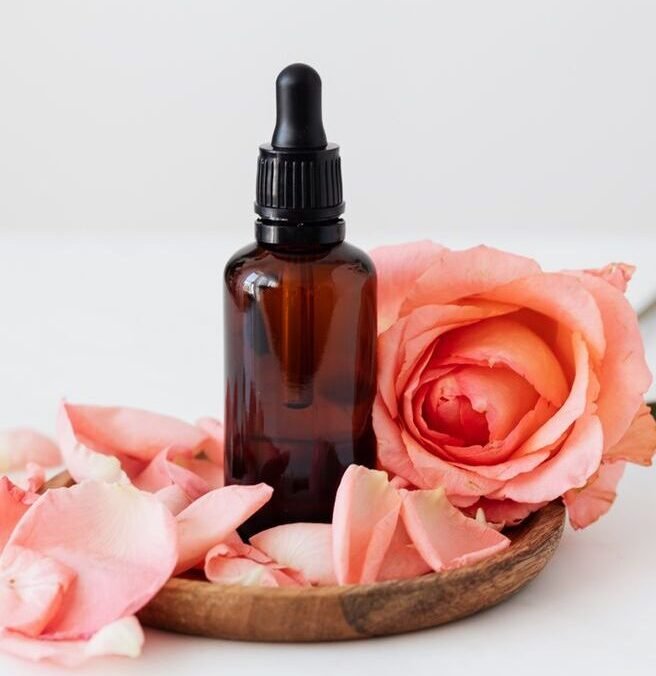
Benefits of Essential Oils for Skin
Essential oils offer numerous benefits for the skin:
- Hydration: Moisturize and nourish dry skin.
- Balancing: Regulate oil production in oily skin.
- Soothing: Calm sensitive and irritated skin.
- Anti-Aging: Reduce the appearance of fine lines and wrinkles.
- Brightening: Enhance skin radiance and even out skin tone.
- Healing: Promote skin repair and reduce scars.
How to Choose the Right Essential Oil for Skin
Selecting the right essential oil depends on your skin type and specific concerns:
- Dry Skin: Look for oils with hydrating and nourishing properties.
- Oily and Acne-Prone Skin: Choose oils that balance and clarify the skin.
- Sensitive Skin: Opt for gentle, soothing oils.
- Aging Skin: Seek out revitalizing and firming oils.
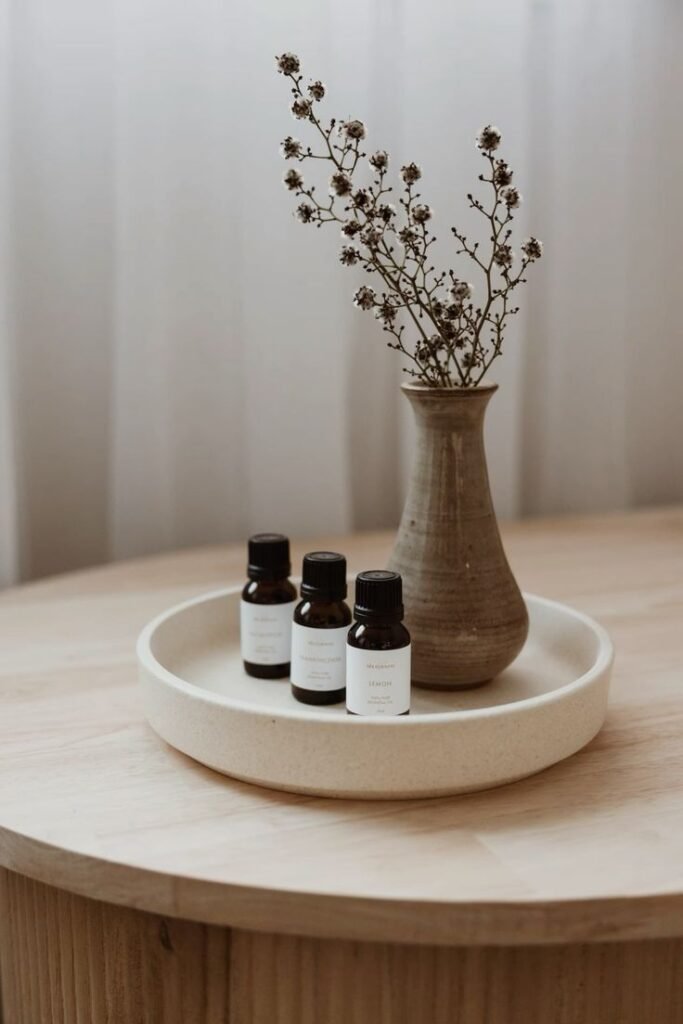
Essential Oils for Dry Skin
Hydrating and Nourishing Oils
Lavender Oil
- Benefits: Hydrates and soothes dry skin, promotes relaxation.
- Usage: Mix a few drops with a carrier oil like jojoba or sweet almond oil and apply to the skin.
Rosehip Oil
- Benefits: Rich in essential fatty acids and antioxidants, deeply nourishes and repairs the skin.
- Usage: Apply directly to the skin or mix with your moisturizer.
Essential Oils for Oily and Acne-Prone Skin
Balancing and Clarifying Oils
Tea Tree Oil
- Benefits: Antibacterial and anti-inflammatory properties, helps reduce acne.
- Usage: Dilute with a carrier oil and apply to affected areas.
Lemon Oil
- Benefits: Astringent properties help balance oil production and reduce breakouts.
- Usage: Dilute with a carrier oil and apply to oily areas. Avoid sun exposure after application.
Essential Oils for Skin Sensitivity
Gentle and Soothing Oils
Chamomile Oil
- Benefits: Calms and soothes irritated skin, reduces redness.
- Usage: Mix with a carrier oil and apply to sensitive areas.
Frankincense Oil
- Benefits: Gentle on the skin, helps reduce inflammation and promote healing.
- Usage: Dilute with a carrier oil and apply to the skin.
Essential Oils for Anti-Aging
Revitalizing and Firming Oils
Rose Oil
- Benefits: Hydrates and firms the skin, reduces the appearance of fine lines and wrinkles.
- Usage: Mix with a carrier oil and apply to the face and neck.
Geranium Oil
- Benefits: Promotes cell regeneration and improves skin elasticity.
- Usage: Dilute with a carrier oil and apply to aging skin.
Essential Oils for Skin Brightening
Radiance-Boosting Oils
Carrot Seed Oil
- Benefits: High in antioxidants, helps brighten and even out skin tone.
- Usage: Mix with a carrier oil and apply to the skin.
Ylang Ylang Oil
- Benefits: Enhances skin radiance, balances oil production.
- Usage: Dilute with a carrier oil and apply to the face.
Essential Oils for Scar Reduction
Healing and Regenerative Oils
Helichrysum Oil
- Benefits: Promotes skin healing and reduces the appearance of scars.
- Usage: Mix with a carrier oil and apply to scars.
Cedarwood Oil
- Benefits: Helps regenerate skin cells and reduce scarring.
- Usage: Dilute with a carrier oil and apply to the affected area.
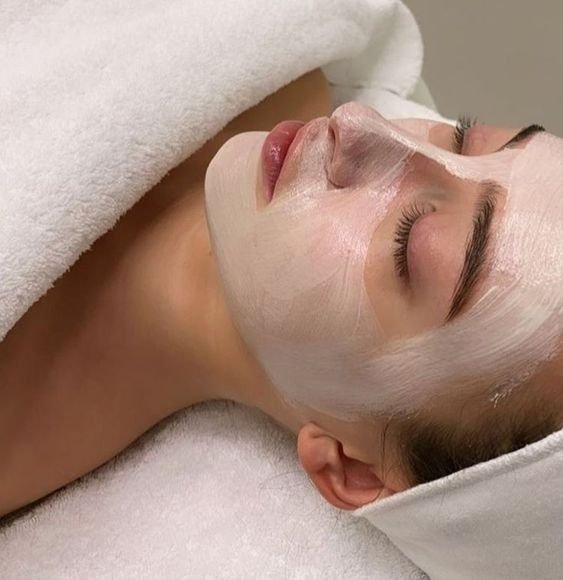
How to Use Essential Oils for Skin Safely
Best Practices and Tips
- Dilution: Always dilute essential oils with a carrier oil (e.g., jojoba, almond, coconut) to avoid skin irritation.
- Patch Test: Perform a patch test on a small skin area to check for allergic reactions.
- Storage: Store essential oils in a cool, dark place to preserve their potency.
- Avoid Eye Area: Keep oils away from the eyes and mucous membranes.
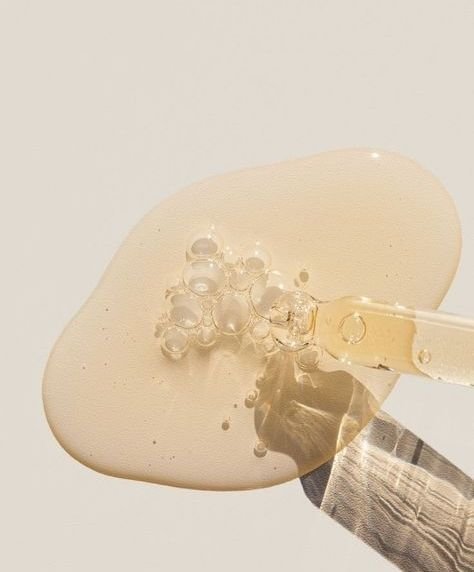
DIY Recipes with Essential Oils for Skin
Face Masks, Serums, and More
Hydrating Face Mask
- Ingredients: 2 tablespoons of yogurt, 1 teaspoon of honey, 3 drops of lavender oil.
- Instructions: Mix ingredients and apply to the face. Leave on for 15 minutes and rinse with warm water.
Acne-Fighting Serum
- Ingredients: 1 ounce of jojoba oil, 5 drops of tea tree oil, 3 drops of lavender oil.
- Instructions: Mix oils in a small bottle. Apply a few drops to the face after cleansing.
Brightening Toner
- Ingredients: 1 cup of distilled water, 1 tablespoon of apple cider vinegar, 5 drops of lemon oil.
- Instructions: Mix ingredients in a spray bottle. Shake well and spritz on the face after cleansing.
Potential Risks and Precautions
Ensuring Safe Usage
- Photosensitivity: Some oils, like citrus oils, can cause photosensitivity. Avoid sun exposure after application.
- Allergic Reactions: Always perform a patch test and discontinue use if irritation occurs.
- Pregnancy and Medical Conditions: Consult a healthcare provider before using essential oils if pregnant or having a medical condition.
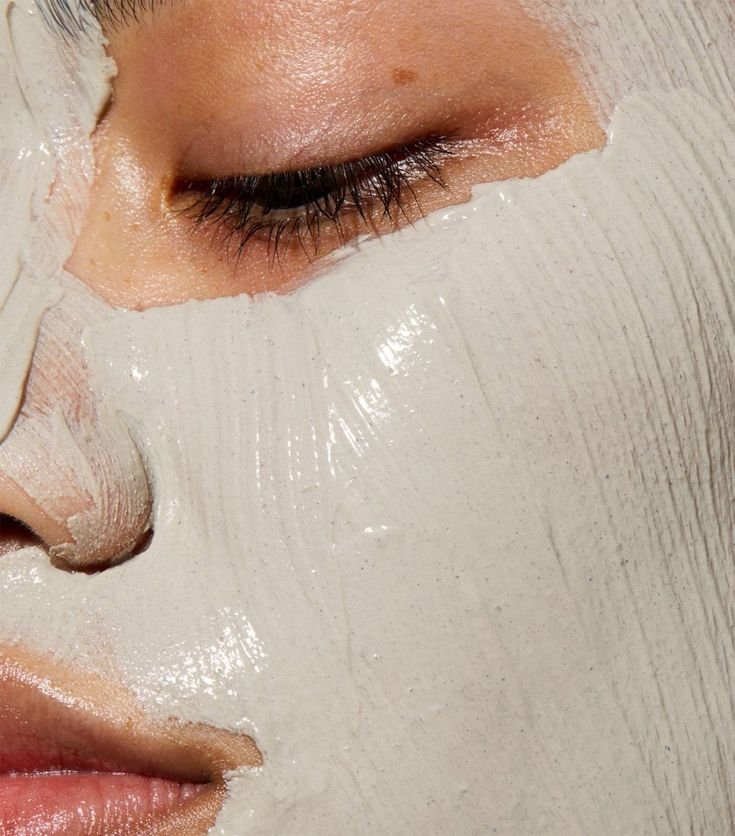
Frequently Asked Questions
Can essential oils be used directly on the skin? Essential oils should always be diluted with a carrier oil to avoid irritation.
How often should I use essential oils in my skincare routine? It depends on your skin type and the oil used. Generally, 2-3 times a week is sufficient.
Are essential oils safe for all skin types? While many essential oils are safe, it’s important to choose ones that match your skin type and perform a patch test first.
Can I mix different essential oils together? Yes, combining essential oils can enhance their benefits. Ensure compatibility and dilute appropriately.
What should I do if I experience a reaction to an essential oil? Rinse the area with cool water and discontinue use. If irritation persists, consult a healthcare provider.
Conclusion
Essential oils offer a natural, effective way to enhance your skincare routine. By understanding your skin type and choosing the right oils, you can address various skin concerns and achieve a radiant, healthy complexion. Embrace the power of essential oils and discover the benefits of these potent plant extracts for your skin.
